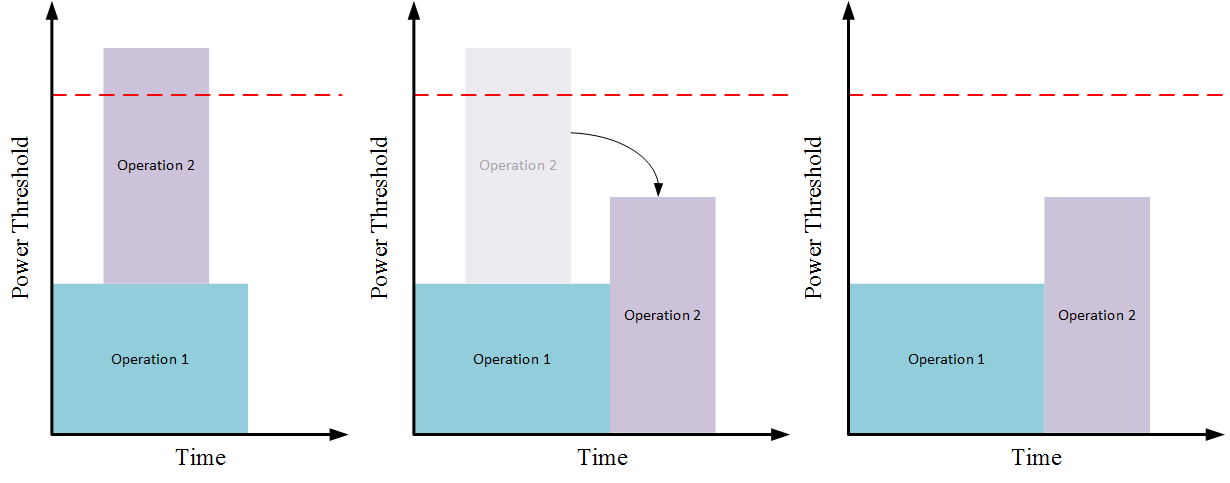An important issue in industry nowadays is to reduce energy consumption of production systems.
Different approaches exist among which can be mentioned the reduction of the total energy used, financial approaches or avoiding peak consumption. This is on this last point that I focused my researches so far.
The problem is to schedule operations without exceeding a given power threshold. Thus, if two operations could be scheduled simultaneously, this leading to a violation of the power threshold (you know, when you start the oven and the ceramic hob, or the radiator at the same moment and you end up with no lights at eleven pm...), then one of the two operations should be postponed.

In a shop floor, considering power limitations is becoming more and more important. The power threshold can be considered a parameter of the problem but other approaches can lead to various solutions with more or less power required to process the operations. If the use of a lot of power is allowed, the production will end sooner than a system with a high power limitation. Several solutions could be obtained, ranging from the one presenting the highest power requirements and the shortest total processing time (or minimal lateness depending on your objectives) to the one with lowest requirements but with highly delayed operations (leading to penalties which can still be lower than the gain from reducing the power limitation for instance).
When several solutions present different criteria you have a Pareto frontier of possible solutions. Such a pool of solutions can be usefull to adapt the production of the week according to the production orders. For instance, if the late penalties associated with the customers for week A is not that important, one may schedule efficiently the operations by choosing a solution with low power requirements. If customers in week B present high late penalties, then choosing a tradeoff between power required and late penalties is preferable.
Since the problem is quite new, instances have been created for research studies. These instances are available here, with an explanation on the way they have been created and on their different parts; In the future, the dataset will be extended with large scale instances.
A paper has also been published in IJPR (International Journal of Operations Research (Kemmoé, Lamy and Tchernev, 2017)) on a scheduling problem involving variable power thresholds. The objective of the paper is to propose solutions to schedule efficiently operations when the power limitation is decreasing (or increasing) over time. The approach allows to tackle several real case applications such as the use of renewable energy sources that are not available any time (solar resources), or to define the instant power required by the production system when subscribing a new contract with the electricity provider.
A work on Flexible Manufacturing Systems involving power limitations is also under study.